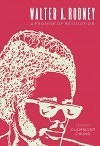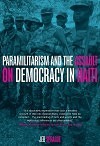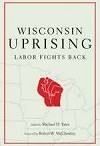Americas

This book presents a moving and insightful portrait of scholar and revolutionary Walter Rodney through by the words of academics, writers, artists, and political activists who knew him intimately or felt his influence. These informal recollections and reflections demonstrate why Rodney is such a widely admired figure throughout the world, especially in poor countries and among oppressed peoples everywhere. | more…
Just over a year since the beginning of the worst U.S. financial crisis since the Great Depression, and only six months after the federal bailout of Bear Stearns, the seizing up of credit markets continues. The failure of eight U.S. banks this year, including IndyMac, and the recent instability that struck the two government-sponsored mortgage giants, Fannie Mae and Freddie Mac, requiring a special government rescue operation, has had the entire financial world on edge. Mortgage-related losses by themselves “could cause a trillion dollars in credit to vaporize,” according to a special July 28, 2008,Business Week report. The downside effects of financial leveraging (the magnification of results associated with borrowed money) mean that each dollar lost by financial institutions could lead to reductions in lending of fifteen dollars or more, creating a shockwave so massive that it could reveal structural weaknesses throughout the economy. Already the economy is reeling, with faltering growth, a deep slump in housing, massive job losses, rapidly rising oil and consumer goods prices, and a falling dollar | more…
Beginning in March 2008 and extending through the last Democratic primaries of early June, the United States witnessed the most brazen demonization in its history of a person based on his race, his creed, and his ties to a presidential candidate. One major purpose behind these attacks was to use the demonized figure to discredit the politician. But participation in the attacks also fed the voracious, twenty-four-hour-aday media appetite, and quickly took on a life of its own. When we look back at the ugly spectacle then taking place, the evidence suggests that, despite much optimism about narrowing racial divides and an emerging “post-racial” consciousness, something much closer to the opposite had gripped America. | more…

In this path-breaking book, Jeb Sprague investigates the dangerous world of right-wing paramilitarism in Haiti and its role in undermining the democratic aspirations of the Haitian people. Sprague focuses on the period beginning in 1990 with the rise of Haiti’s first democratically elected president, Jean-Bertrand Aristide, and the right-wing movements that succeeded in driving him from power. Over the ensuing two decades, paramilitary violence was largely directed against the poor and supporters of Aristide’s Lavalas movement, taking the lives of thousands of Haitians. Sprague seeks to understand how this occurred, and traces connections between paramilitaries and their elite financial and political backers, in Haiti but also in the United States and the Dominican Republic. | more…
I am certain that, like many people these days, the first thing on your mind is the question of the referendum on reform of the Bolivarian Constitution — what the defeat means and where do we go from here. What I want to talk about today is not on that topic specifically, but it is related. | more…
The subprime mortgage crisis that emerged late last summer in the United States led to a massive seizure in the world financial system that has had capital staggering ever since. This has now carried over to the “real economy” of jobs and income. As reported in the Wall Street Journal on April 4, “The National Bureau of Economic Research probably won’t say this for months. But why wait? The U.S. economy fell into recession sometime in January” (“Job Market Hints Recession Has Started”). World economic growth as a whole is expected to decline sharply this year… | more…
The United States and the world economy are now experiencing a major economic setback that began in the financial sector with the bursting of the housing bubble, but which can ultimately be traced back to the basic problems of capitalism arising from class-based accumulation (see the Review of the Month in this issue).…Things are clearly much worse, with respect to the general public understanding of these problems, here in the United States, the citadel of capitalism, than elsewhere in the world. We were therefore bemused by an article entitled “Europe’s Philosophy of Failure” by Stefan Theil, Newsweek‘s European economics editor, appearing in the January–February 2008 Foreign Policy. Theil writes of the “prejudice and disinformation” incorporated in French and German secondary school textbooks dealing with economics. Such textbooks he complains “ingrain a serious aversion to capitalism.” | more…
Rodrigo Granda is a member of and the leading international spokesperson for the Fuerzas Armadas Revolucionarias de Colombia-Ejército del Pueblo, the Revolutionary Armed Forces of Colombia-People’s Army (FARC–EP). His name gained global prominence in December 2004 when he was kidnapped in Venezuela and handed over to Colombian authorities by a number of Venezuelan National Guard soldiers seeking a reward placed on his head by the Colombian government. At the time of his capture Granda was attending a meeting of the Bolivarian Peoples Movements in Caracas. Granda’s kidnapping in Venezuela at the instigation of the Colombian government created an international dispute between Venezuela and Colombia. He was released in 2007 in response to pressures exerted on the Colombian government by French President Nicolas Sarkozy. | more…
Soon after joining Cuba’s Foreign Relations Ministry, in the early 1960s, I learned about Victor Rabinowitz and Leonard Boudin. Before meeting them I already knew how much Fidel admired and respected these two distinguished American lawyers, who were representing Cuba in the midst of a very complex and difficult confrontation and a very uneven one.…At the time I didn’t imagine that I was going to be sent to New York to my first and only diplomatic assignment. It was not exceedingly easy to begin a diplomatic career, or any career for that matter, at the top and to transform yourself in a couple of years from a student of philosophy into the youngest ambassador ever at the UN. It did not help that I was representing a country that was almost completely isolated in the Western Hemisphere. | more…

In early 2011, the nation was stunned to watch Wisconsin’s state capitol in Madison came under sudden and unexpected occupation by union members and their allies. The protests to defend collective bargaining rights were militant and practically unheard of in this era of declining union power. This timely book brings together some of the best labor journalists and scholars in the United States, many of whom were on the ground at the time, to examine the causes and impact of events, and suggest how the labor movement might proceed. | more…
The victory of the No vote in the Venezuelan constitutional reform referendum in December is being treated by Washington as a major defeat for Chávez’s efforts to promote a socialism for the twenty-first century in Venezuela. But the opposition to the Bolivarian Revolution was so aware of its own weaknesses that it adopted as its final slogan “Chávez, Yes; Reform, No.” The defeat of the constitutional reform was guaranteed by the fact that 44 percent of the population, many of whom had supported Chávez previously, chose not to vote. This may simply be due to the fact that the proposed constitutional reforms were enormously complex with changes in 69 articles. But it is also true that a propaganda campaign authored and choreographed by Washington and the CIA, and implemented by the Venezuelan elites who control the private media, had a considerable effect in blocking the reform effort. | more…
I am here to salute you—because you are attempting to do what nobody has ever succeeded in doing before—help autonomous groups of workers and consumers plan their interrelated activities democratically, equitably, and efficiently themselves. You have already created the elements of what you call the “social economy”—worker-owned cooperatives, communal councils, municipal assemblies, participatory budgeting, subsidized food stores, health care clinics, and nuclei of endogenous development. Now you want the cooperatives and communal councils to display solidarity for one another rather than treat each other as antagonists in commercial exchanges. And sooner rather than later you want the benefits of this kind of participatory, socialist economy to encompass the entire economy and all Venezuelans. | more…


